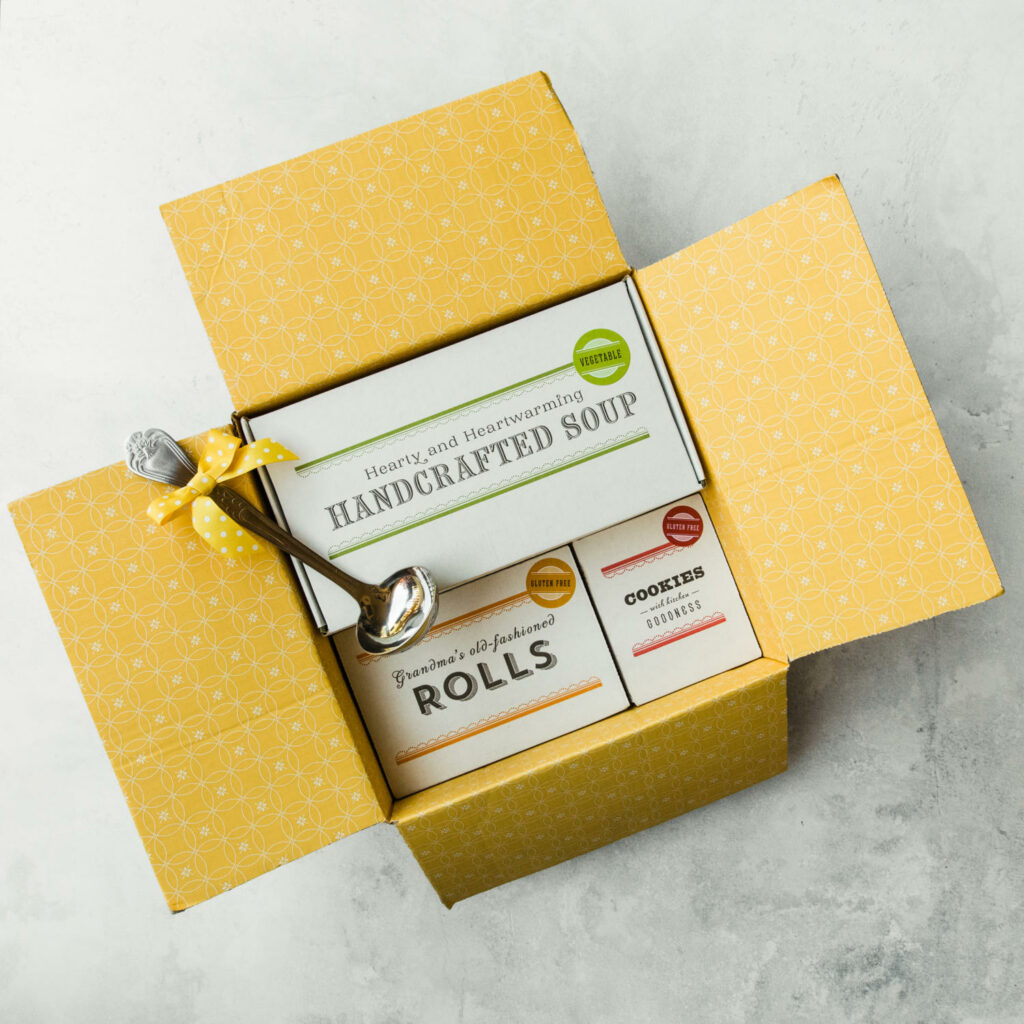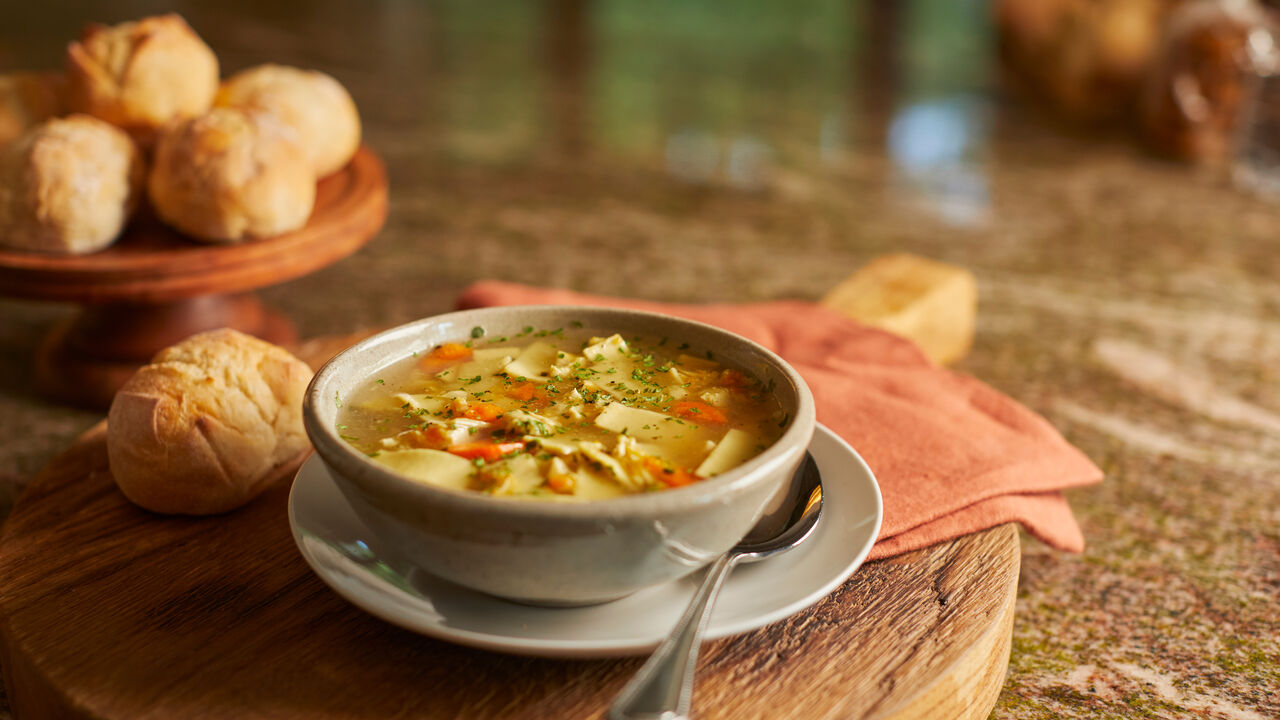Blog Posts
Father’s Day Gift Ideas: The Ultimate Guide to Unique ...
Dad will always love you, but doesn’t he deserve something more than just another tie? Get inspired with this ultimate gift guide on Father's Day gift ideas to help you.
Read More
What to Say When Someone is Sick
Saying “Get Well Soon” may be the most popular reason people come to Spoonful of Comfort. After all, what makes friends feel better than a bowl of soup served up with warm wishes?
Read more
Shipping Package to Stylish Storage
Our shipping box and the cute compartments inside can be refolded with the patterned sides out to create a stylish storage box. Re-use it to reduce your clutter, upgrade your space, or send a thoughtful gift to someone else.
Read more
Ways to Say “I’m Thinking of You”
Show someone you’re thinking of them with little gestures that go a long way. Through acts of kindness or heartfelt words, there are so many thoughtful ways you can bring them some sunshine and touch their heart.
Read more